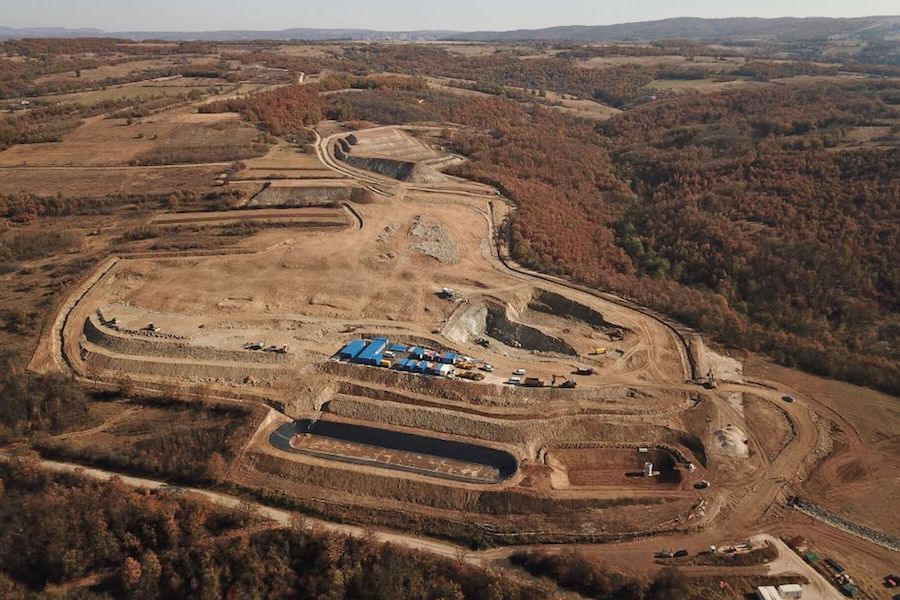
Zijin has poured $474 million to date into the new underground mine, which is slated to have annual capacity of 3.3 million tonnes of ore.
“The first part of the project involves mining an ultra high-grade ore body. It is expected to produce 50,000 tonnes of copper and 3 tonnes of gold in 2021,” it said.
Cukaru Peki was originally slated to begin production in the summer of 2021, with an initial average copper output of 91,000 tonnes a year and annual gold production of about 200,000 ounces. It is now expected to gradually increment output until reaching a peak of 135,000 tonnes of copper a year.
Sebia’s government anticipates the country’s booming mining sector will start generating between 4% and 5% of its total GDP in less than 10 years, a significant increase from its current 2%.
In 2018 Zijin Mining became Serbia’s strategic partner in RTB Bor, the country’s sole copper complex, pledging to invest $1.9 billion over six years in return for a 63% stake.
Since then, it has invested $142 million to improve local ecology and environment, which is more than double of the amount agreed in a strategic agreement with the company, according to Zijin.
The Zijin-RTB Boor venture unfolded as Serbia deepened its ties with China despite concern from the European Union, which the Balkan state is trying to join.
RTB Bor, in eastern Serbia, was key in the development of Serbia’s industrial sector before the collapse of communist Yugoslavia in the early 1990s. However, it later became a burden on the country’s struggling economy because of malpractices and international sanctions during the regime of late president Slobodan Milosevic.
The company had to temporarily halt work at the mine in April due to alleged breach of the country’s environmental standards.
The Serbian unit was ordered to complete a wastewater treatment plant on priority at the mine to avoid polluting the River Pek, a tributary of the Danube.
Key market
Serbia Zijin Copper is in the midst of overhauling and expanding its four mines and a smelter. The plan also includes improving environmental protection in the heavily polluted Bor region, in Serbia’s east.
The newly open mine is also expected to boost Serbia’s gold reserves rom an already record-high 37 tonnes, President Aleksandar Vucic said on Friday. The move seeks to prepare for challenges such as the energy crisis rattling Europe
China has spent billions of euros in Serbia, as part of its so-called belt and road initiative to open new foreign trade links for local companies.




